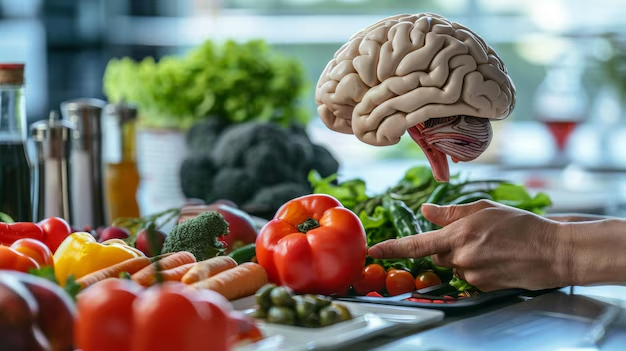Memory loss can be distressing and affect various aspects of life, from daily activities to overall quality of life. One often overlooked factor in cognitive health is diet. Certain foods can contribute to memory loss and cognitive decline. This article explores ten foods that are known to negatively impact memory and provides practical tips for making healthier choices.
Understanding Memory Loss
Memory loss can result from numerous factors, including aging, stress, and health conditions. However, diet is a significant, modifiable factor that affects cognitive function. By avoiding specific foods and incorporating brain-healthy options, you can support better memory and overall brain health.
10 Foods That May Contribute to Memory Loss

1. Sugary Foods and Drinks
- Impact: High sugar levels can lead to inflammation and oxidative stress, which may impair cognitive function.
- Examples: Sodas, candies, pastries, and sweetened cereals.
2. Refined Carbohydrates
- Impact: Foods with refined carbs can cause rapid blood sugar fluctuations, potentially affecting memory and concentration.
- Examples: White bread, pasta, and baked goods made with white flour.
3. Trans Fats
- Impact: Trans fats contribute to inflammation and may negatively impact brain health.
- Examples: Fried foods, certain margarines, and packaged snacks.
4. Excessive Alcohol
- Impact: Heavy alcohol consumption can damage brain cells and impair memory and cognitive functions.
- Examples: Beer, wine, and spirits consumed in large quantities.
5. Highly Processed Foods
- Impact: These foods often contain artificial additives, high sodium, and unhealthy fats, which may contribute to cognitive decline.
- Examples: Processed meats, instant noodles, and ready-to-eat meals.
6. High-Sodium Foods
- Impact: Excessive sodium can lead to high blood pressure, a risk factor for cognitive decline.
- Examples: Canned soups, salty snacks, and processed cheeses.
7. Red and Processed Meats
- Impact: High consumption of these meats may be associated with an increased risk of cognitive decline due to their high levels of saturated fats and preservatives.
- Examples: Bacon, sausages, and beef burgers.
8. Artificial Sweeteners
- Impact: Some studies suggest that artificial sweeteners may negatively impact cognitive function and memory.
- Examples: Aspartame, saccharin, and sucralose found in diet sodas and sugar-free products.
9. Fried Foods
- Impact: Foods that are deep-fried can contain harmful compounds that may impair cognitive function.
- Examples: French fries, fried chicken, and doughnuts.
10. High-Fructose Corn Syrup
- Impact: This sweetener, often found in processed foods and drinks, can lead to inflammation and cognitive issues.
- Examples: Sweetened beverages, some baked goods, and many packaged snacks.

Tips for a Brain-Healthy Diet
1. Opt for Whole Grains
- Benefits: Whole grains provide steady energy and essential nutrients that support brain health.
- Examples: Brown rice, quinoa, and whole-wheat bread.
2. Include Healthy Fats
- Benefits: Healthy fats, such as those found in avocados and nuts, support brain function.
- Examples: Olive oil, walnuts, and flaxseeds.
3. Eat a Variety of Fruits and Vegetables
- Benefits: These foods are rich in antioxidants and vitamins that protect the brain from damage.
- Examples: Berries, leafy greens, and bell peppers.
4. Incorporate Lean Proteins
- Benefits: Proteins provide essential amino acids necessary for cognitive health.
- Examples: Chicken breast, tofu, and legumes.
5. Stay Hydrated
- Benefits: Proper hydration is crucial for maintaining cognitive function.
- Examples: Water, herbal teas, and low-sugar beverages.
Conclusion
Diet plays a crucial role in memory health and cognitive function. By avoiding foods that contribute to memory loss and incorporating brain-friendly options, you can support better cognitive function and overall brain health. For more guidance on maintaining a healthy diet and its effects on memory, consider exploring these reputable resources:
By making informed dietary choices, you can take proactive steps to protect your memory and enhance your overall cognitive well-being.




